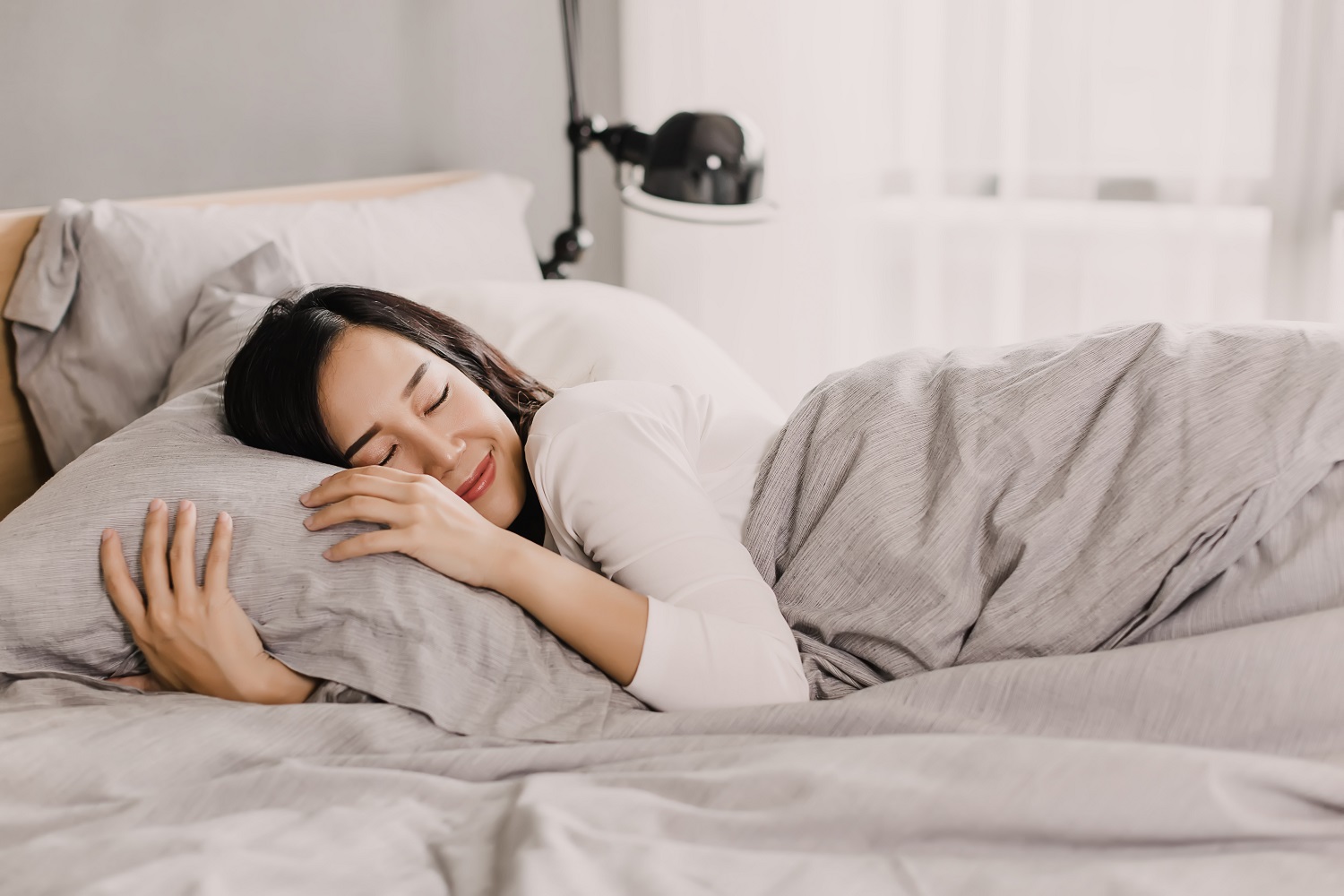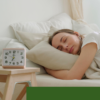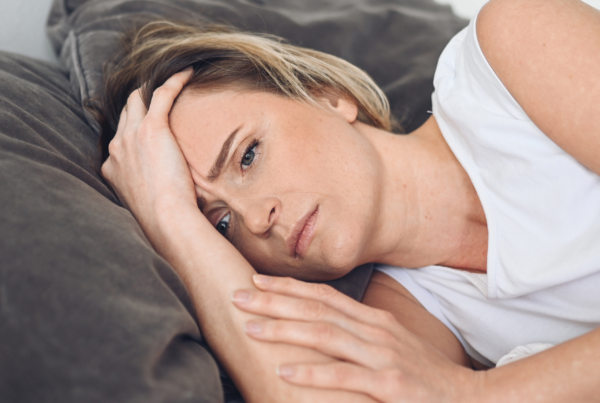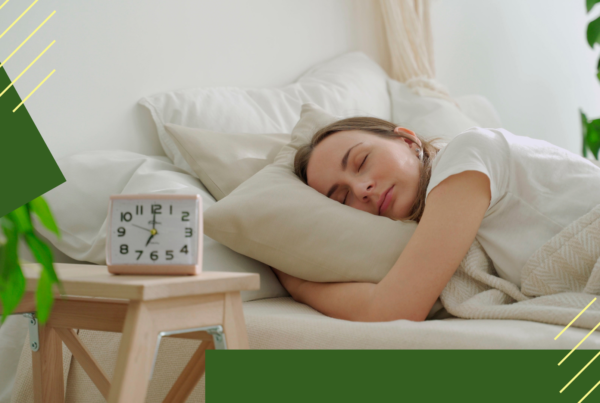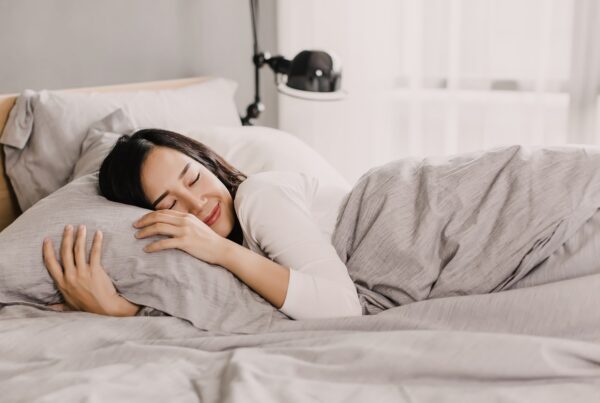When asked what is the number one most important thing one can do to get healthy or maintain their health, my reply is always the same…
“make sure you’re consistently getting deep restorative sleep.”
Poor sleep is linked to numerous health issues including increased risk of stroke, heart attack, anxiety, depression, irritable bowel, chronic pain, brain fog, fatigue, low immunity, and weight gain.
My answer often surprises the hosts of the many summits, docuseries, and podcasts I’m on. Most people, including health professionals when asked what’s the most important health habit for good health will advocate a healthy diet, some exercise, others a positive mental attitude. All are important. However, the importance and far reaching affects of a good night’s sleep can’t be over emphasized. It’s during deep restorative that the body and mind are able to repair the damage from that day’s demands.
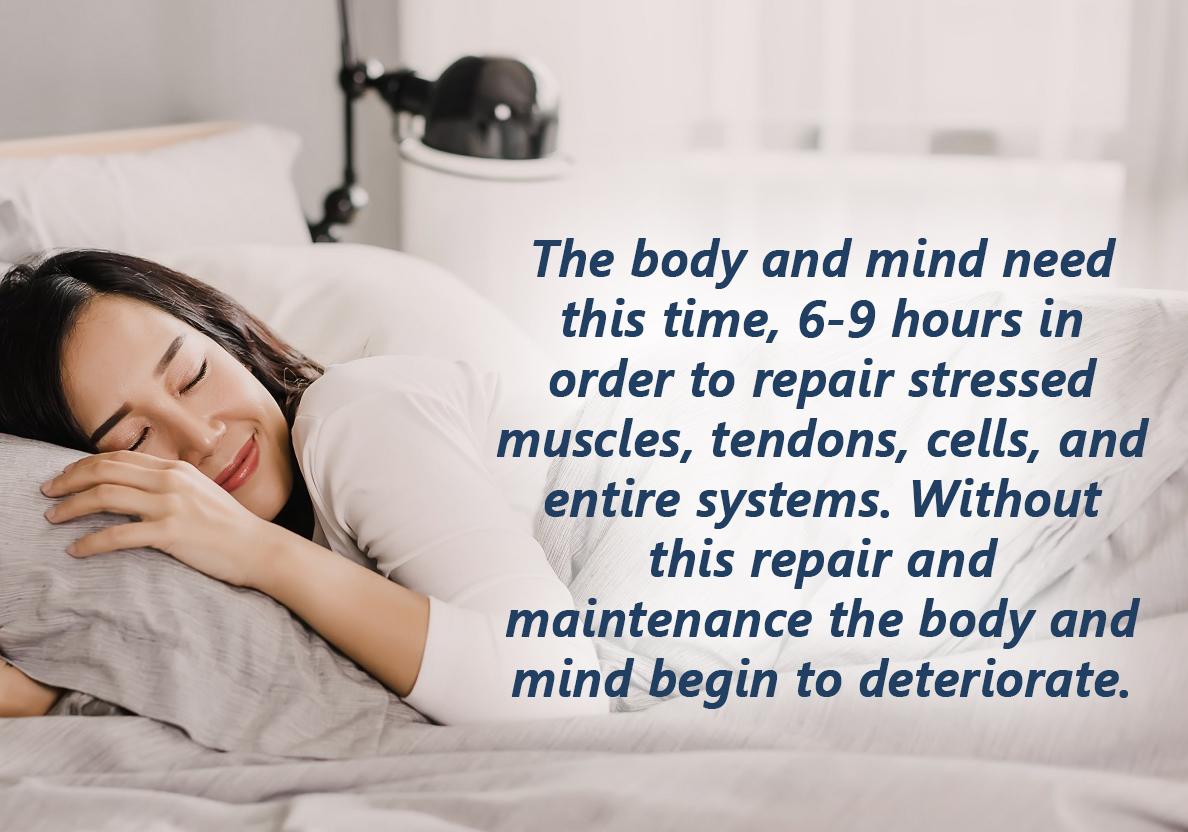
Stress Is The Catalyst For Disease
I and many other health care professionals agree that stress is the catalyst of disease. Or dis-ease.
Studies have found many health problems related to stress. Stress seems to worsen or increase the risk of conditions like obesity, heart disease, Alzheimer’s disease, diabetes, depression, gastrointestinal problems, and asthma. The American Medical Association has noted that stress is the basic cause of more than 60 percent of all human illness and disease. I disagree. I believe stress is the underlying cause 90 percent of all illnesses.
Chronic poor sleep is incredibly stressful and compromises the body’s ability to “heal itself” on a nightly basis.
I’ve witnessed first hand how my chronically ill patients were able to dramatically reduce or eliminate their chronic pain, low moods, fatigue, brain fog, stomach issues, high blood pressure, weight gain, headaches, and other unwanted troubling health issues, by simply getting a good night’s sleep on a regular basis.
What You Need To Know About Getting A Good night’s Sleep
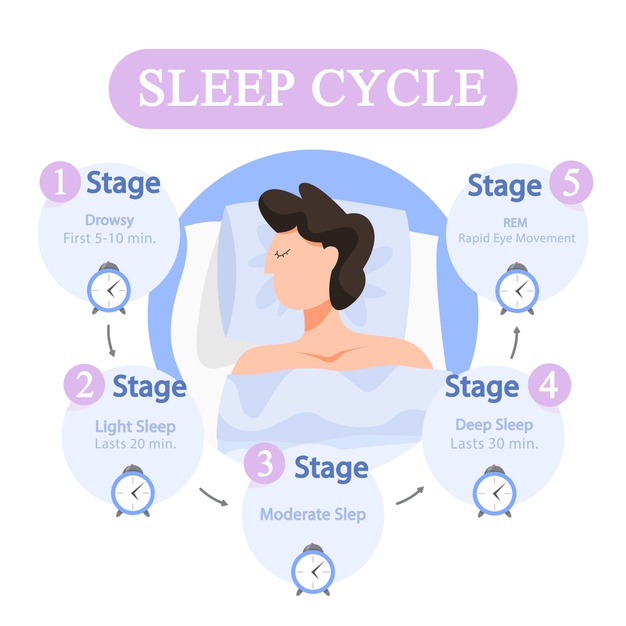 There are two types of sleep: REM (rapid eye movement) sleep and non-REM sleep.
There are two types of sleep: REM (rapid eye movement) sleep and non-REM sleep.
Non-Rem Sleep
- The function of this stage is to restore and rebuild the body after a long period of wakefulness.
- During NREM sleep, your body temperature, heart rate, and blood pressure decrease, your muscles relax, and metabolism slows.
- Deep sleep is the sleep stage that is associated with the slowest brain waves during sleep.
- This period of sleep is known as slow-wave sleep: it produces slow waves with relatively high amplitude and a frequency of less than 1 Hz.
- Non-REM sleep is further divided into three stages.
Stage 1 occurs when you first fall asleep. As your body enters light sleep, your brainwaves, heart rate, and eye movements slow down. This phase lasts for about seven minutes.
Stage 2 involves the light sleep just before deep sleep. Your body temperature decreases, your eye movements stop, and your heart rate and muscles continue to relax. Your brain waves briefly spike then slow down. During a night of sleep, you spend the most time in Stage 2.
Stage 3 is the deepest and is crucial for overall well-being. In Stage 3, deep sleep begins. Your eyes and muscles don’t move, and your brainwaves slow down even further. This usually occurs one and a half hours after falling a sleep. Your body replenishes its energy and repairs cells, tissues, and muscles. You need this phase to feel awake and refreshed the next day.
The non-REM cycle is then interrupted by ten minutes of REM sleep, which elicits a flurry of brain activity as you dream. These cycles occur five to six times per night. The time spent in REM continues to grow and may last up to an hour in the final cycle of sleep.
REM Sleep
During REM sleep, the eyes—still closed—rapidly move back and forth as dreaming takes place. This stage first happens about ninety minutes after you fall asleep. Your eyes move quickly from side to side during REM sleep. In REM sleep, your brainwaves and eye movements increase. Your heart rate and breathing also speed up. As mentioned, dreaming often happens during REM sleep. Your brain also processes information during this stage, making it important for learning and memory.
- REM sleep elicits a flurry of brain activity. These cycles occur five to six times a night.
- The time spent in REM continues to grow and may last up to an hour in the last cycle of sleep.
- We dream during the REM cycle. It’s our dream cycle.
- During the REM cycle the eyes, while still closed, rapidly move back and forth. This is where dreaming takes place.
- REM sleep usually lasts anywhere from eleven to twenty-five minutes, typically longer in the later sleep cycles of the night.
- About 25% of all sleep is REM sleep in adults. In children, it is even higher (up to 50%).
- On completion of a phase of REM sleep, the brain and body return to Stage I and begin another sleep cycle.
The hormone melatonin isn’t just for inducing sleep. It is a powerful antioxidant and helps reduce harmful free radicals, inflammation and limit cellular and DNA damage from a process known as “oxidative stress.” It helps prevent heart attack, stroke, high blood pressure and atherosclerosis.
Melatonin protects against age-related brain disease, including Alzheimer’s. It also suppresses cancer cell and tumor growth, protects the mitochondria (which are the energy sparkplugs of our cells), and plays an important role regulating the immune system.
To prevent the build up of brain toxins I recommend taking 1-3mg of melatonin each night. If you struggle with poor sleep, you can take up to 9mg of melatonin each night.
Your Circadian Rhythm (Sleep/Wake Cycle)
The ancient Greeks considered the pineal gland to be the seat of the soul. We know that this tiny gland located at the base of our brain plays a vital role in regulating the body’s natural time-keeping clock (also known as the circadian rhythm); specifically it is responsible for releasing the hormone melatonin. Normally, melatonin levels in your body begin to rise in the mid-to-late evening, remain high for most of the night, and then decline in the early morning hours. As darkness falls, enzymes in the brain stimulate the release of melatonin from the pineal gland in the brain. Melatonin levels start to rise as the sun goes down and drop off as the sun comes up. The retina (eyes) are extremely sensitive to changes in light. An increase in light that strikes the retina triggers a decrease in melatonin production. Conversely, limited exposure to light increases melatonin production.
 But some things can work against your body’s production of melatonin. Levels gradually decline with age, and some older adults produce very small amounts or none at all. Melatonin is also affected by a person’s exposure to light. Levels start to rise as the sun goes down and drop off as the sun comes up.
But some things can work against your body’s production of melatonin. Levels gradually decline with age, and some older adults produce very small amounts or none at all. Melatonin is also affected by a person’s exposure to light. Levels start to rise as the sun goes down and drop off as the sun comes up.
The eyes are extremely sensitive to changes in light, and an increase in light striking the retina triggers a decrease in melatonin production.
Conversely, limited exposure to light increases melatonin production. Those suffering from insomnia should avoid bright light two to three hours before bed.
Research shows that as little as 180 lux (lumens per square meter) can interfere with our circadian rhythm. One lux equals the light of one candle. A 100-watt bulb gives off about 190 lux of light. Bedroom lights should be kept low with dimmer switches while reading in bed, or use a small reading light.
Blue Light-blocking glasses available on Amazon or other online sites, are a cheap and effective way to reduce exposure to nighttime light.
Electromagnetic fields can also deplete melatonin. Do you keep any of these things in your bedroom? Electric clock or radio, electric blanket, sound machine, cell phone, electric telephone, electric fan, television, or computer? In fact, any plugged-in electrical device generates electromagnetic fields. Living near a power station or substation also poses a risk of being affected by electromagnetic fields.
And melatonin levels can also be decreased by some medications including non-steroidal anti-inflammatory drugs (NSAIDs). This gives us yet another reason – aside from intestinal bleeding, leaky gut, and an increased risk of heart attack – to avoid chronic use of NSAIDS.
Other drugs that can deplete melatonin include SSRI antidepressants (Prozac, Celexa, Cymbalta, etc.) and antianxiety meds (benzodiazepines-Valium, Xanax, Klonopin, etc.). Yes, the very same drugs used to help you with depression may deplete melatonin, preventing you from getting the deep, restorative sleep you need to make serotonin.
Other culprits include antihypertensive drugs, steroids, over 3 mg. of vitamin B12 in a day, caffeine, alcohol, tobacco, evening exercise (for up to three hours afterwards), and depression.
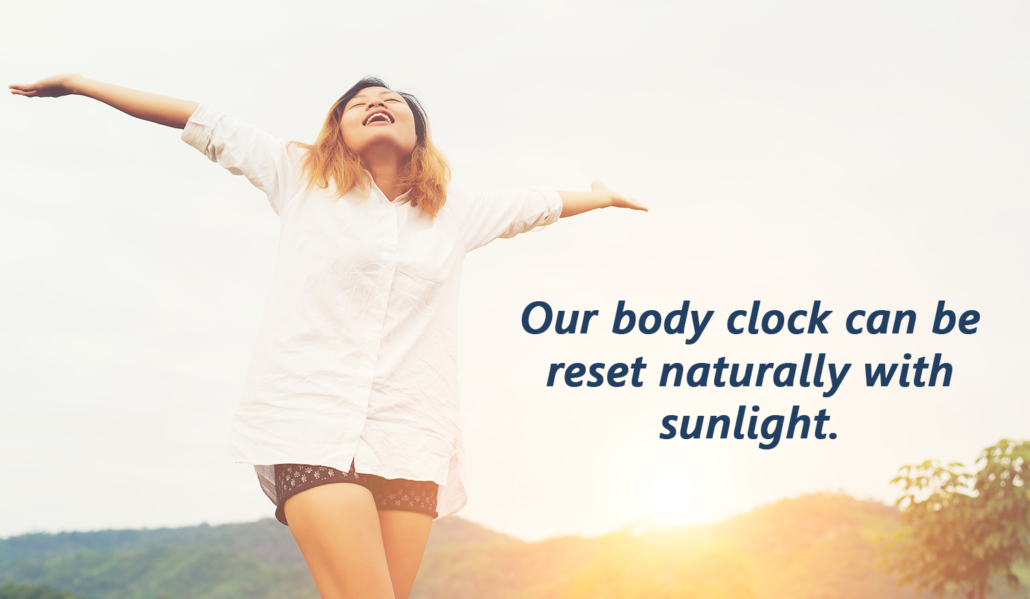
Natural sunlight or bright light during the day helps keep your circadian rhythm healthy. This improves daytime energy, as well as nighttime sleep quality and duration.
In people with insomnia, daytime bright light exposure improved sleep quality and duration. It also reduced the time it took to fall asleep by 83%.
Wake up early the first of day, just after or right before the sun comes up. Go outside, and expose your face to full sunlight for a minimum of twenty minutes. It doesn’t matter if it’s sunny, cloudy, cold, or hot. Simply face the sun for a minimum of twenty minutes. Or if weather isn’t cooperating sit in a window with sunlight for twenty minutes.
If this is done repeatedly over several days or weeks, you will help to adjust your pineal gland. Slowly but surely, your cortisol and melatonin will right themselves, and you’ll find that along with good sleep hygiene, you’ll become sleepier earlier in the evening.
Good Sleep Hygiene
Cool Down
Our body temperature is higher during the day and declines at night. Sleep onset occurs as a person’s body temperature falls and his or her heat loss increases. Body temperature continues to decline during sleep until about four a.m., when it starts to rise again. People usually begin to wake up during this rising part of the circadian rhythm, as the body warms up and stops losing heat. Around 70°F (20°C) seems to be a comfortable temperature for most people, although it depends on your preferences and habits.
Turn Down the Lights
With the invention of electricity, modern man can be bathed in light twenty-four hours a day. Exposure to light during the day is beneficial, but nighttime light exposure has the opposite effect Blue light compromises melatonin levels. I recommend using blue light-blocking glasses. You can download an app such as f.lux to block blue light on your laptop or computer. There are also apps that block blue light on your iPhones or Android phone.
Dramatically reduce or eliminate caffeine altogether. Caffeine can stay elevated in your blood for six to eight hours. Therefore, drinking coffee or caffeinated beverages after 3 or4 p.m. is not recommended. Alcohol is known to cause or increase the symptoms of sleep apnea, snoring, and disrupted sleep patterns. It also suppresses normal nighttime melatonin production.
Routine exercise is an effective habit for restoring deep sleep. One study in older adults determined that exercise nearly halved the amount of time it took to fall asleep and provided forty-one more minutes of sleep at night. In people with severe insomnia, exercise offered more benefits drugs! Exercise reduced time to fall asleep by 55%, total night wakefulness by 30%, and anxiety by 15% while increasing total sleep time by 18%.
The right mattress can make all the difference. One study looked at the benefits of a new mattress for twenty-eight days, revealing that it reduced back pain by 57%, shoulder pain by 60%, and back stiffness by 59%. It also improved sleep quality by 60%.
I also recommend that before bed you turn off the TV and find a comfortable, quiet room (other than your bedroom) where you can read something pleasant by the light of a soft, low-wattage lamp. Relax and read, or listen to soothing music for thirty minutes to an hour.
Keep the lights low, and avoid any stimulation, especially the TV. (In fact, go take the TV out of your bedroom right now!) The bedroom is for intimacy, relaxed reading and sleep.
In place of your reading or listening time, you may want to try a warm Epsom salt bath. Simply pour one cup of Epsom salts into a warm bath, and soak. Again, use low light and no stimuli.
Consider introducing the calming herb lavender into your nighttime routine. It can be used as a bath gel, lotion, or soap—or sprinkled along with Epsom salts directly into your warm bath.
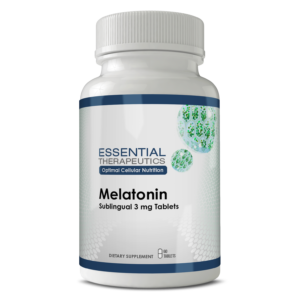 To help fall asleep I recommend trying melatonin. I like this special sublingual melatonin. It dissolves underneath your tongue for rapid absorption. Melatonin capsules and tablets have to be digested pass through the liver before becoming active. Capsules or tablets often decrease in potency after exposure to stomach acids and liver filtrations. By contrast, sublingual tablets dispense the full amount of medication directly into the bloodstream without experiencing liver metabolism.
To help fall asleep I recommend trying melatonin. I like this special sublingual melatonin. It dissolves underneath your tongue for rapid absorption. Melatonin capsules and tablets have to be digested pass through the liver before becoming active. Capsules or tablets often decrease in potency after exposure to stomach acids and liver filtrations. By contrast, sublingual tablets dispense the full amount of medication directly into the bloodstream without experiencing liver metabolism.
This special sublingual form of melatonin dissolves rapidly on the mucous membranes beneath the tongue and enter directly into the tiny blood vessels for rapid and total absorption.
Delta Sleep a special all-natural sleep aid that promotes deep restorative sleep. It’s my go to for helping my patients who have trouble winding down or turning their mind off. It helps “night owls,” and those who tend to catch their second wind towards bedtime. It can be combined with melatonin for and added boost. Simply take 2-4 capsules at bedtime and it works within minutes to calm you down and help you fall right to sleep.
Delta Sleep can also be also be taken during the night to help you fall back to sleep. It typically works within minutes to help you fall back asleep and won’t leave you feeling hung-over, dopey or sleepy the next day.
Both Delta Sleep and Melatonin can be taken with sleep medications.
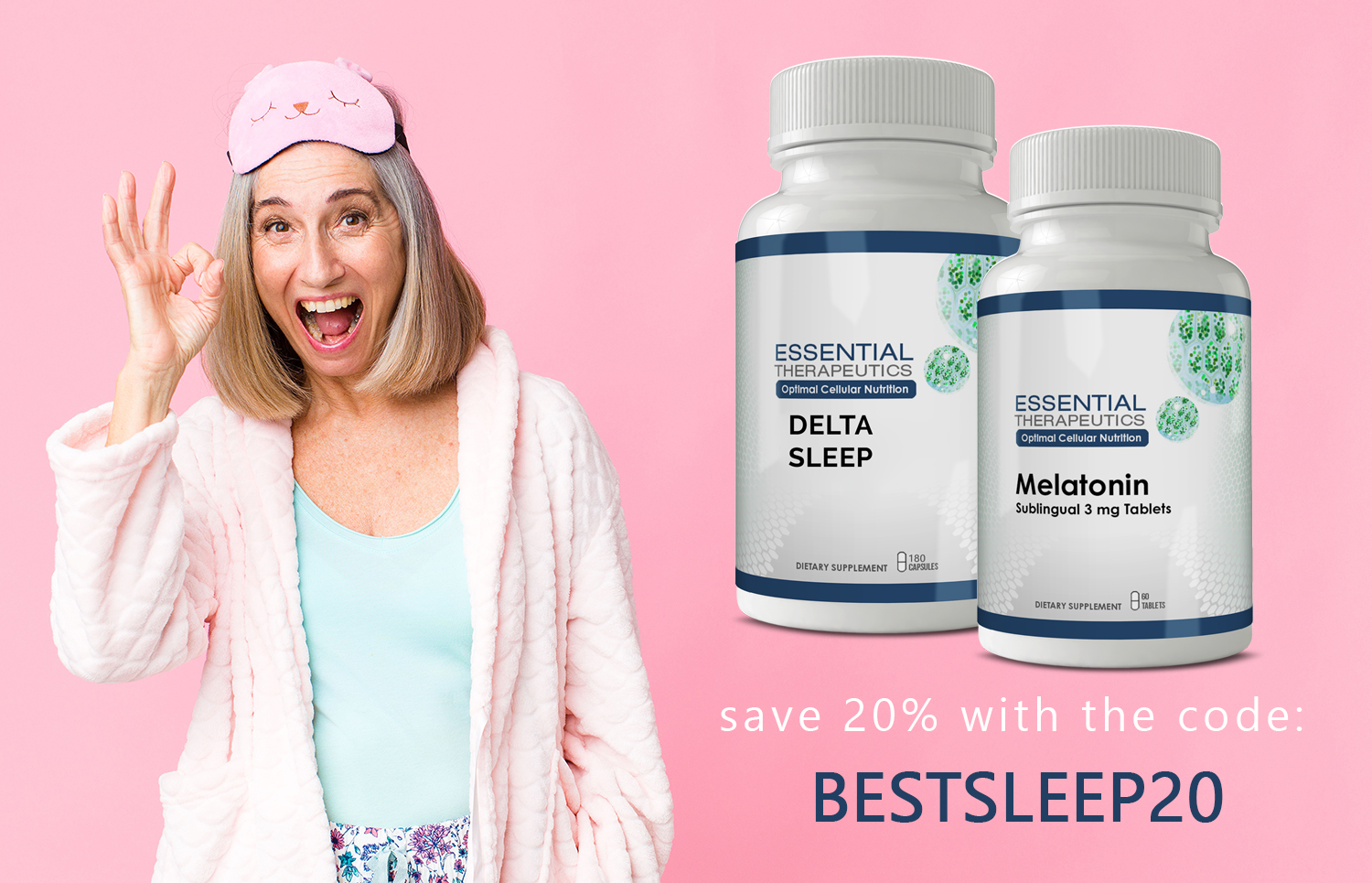
Deep restorative sleep is crucial for good health.
Do You Need A New Mattress?
Along with good sleep hygiene and the right sleep supplements you might want to consider a new mattress. I was so impressed with my new mattress and how it eliminated my chronic sciatica, low back and nerve pain I put together a webinar interview with the owner. The company is offering a discount and several bonuses, including free delivery and a trial of 90 days.
This mattress made a huge difference in my sleep and I can’t recommend it enough. It is an investment so not for everyone but for my patients and myself it has been worth every penny. I wouldn’t want to go back to my old (highly marketed and pricey).
–> You can watch a webinar of this interview HERE.
P.S. Use the sleep hygiene recommendations above. And if needed add sublingual melatonin and Delta Sleep.
Use this code BESTSLEEP20 to save 20% on your first order on Delta Sleep or Melatonin




